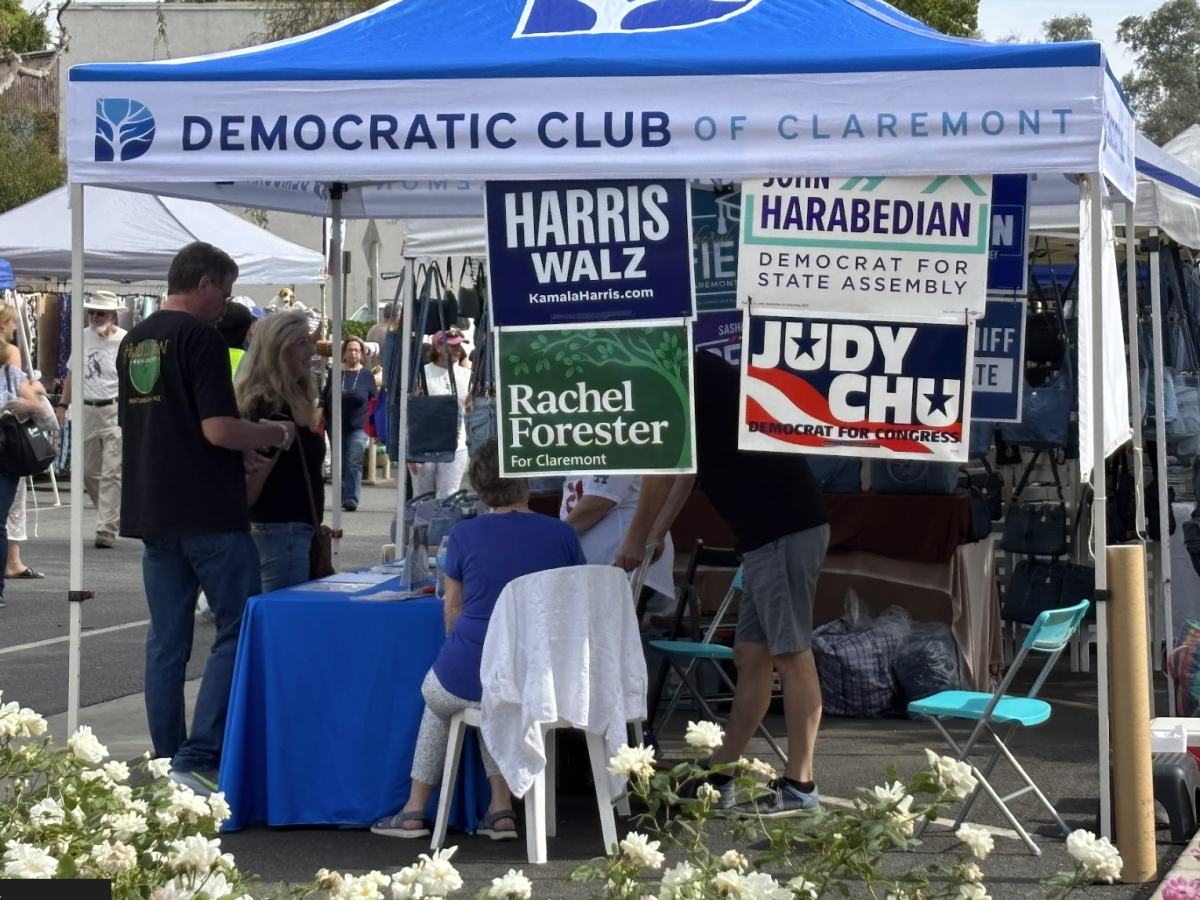Facing off against nearly two-decade incumbent Corey Calaycay, Rachel Forester is hitting the campaign trail with aspirations of progress for Claremont. What is even more clear is that Forester has plans to make this progress happen, unlike her stagnant and indecisive opponent.
The front page of her campaign website describes Forester as “pragmatic and forward-looking with a concrete, realistic, but also optimistic vision for solving persistent problems”. Her policies reflect this too, with her campaign laying plain and simple what they will do, and how they plan to do it.
In an interview, Forester explained her plan to address CUSD’s declining enrollment.
“Currently, the school board and the Claremont City Council only meet once a year,” Forester said. “Now this is a problem because a lot of the things that the council decides directly impacts our schools. By communicating more effectively and more often, we would be able to hear more voices and make better-informed decisions. It’s that bridge I want to build. When things are happening that affect both agencies, such as street safety and access to affordable housing, those agencies should work closely together.”
Her policies for housing, education, the environment, and public safety involve her using her experience as a part of multiple committees and government organizations to communicate with and facilitate meaningful change for the Claremont communities. She has worked with Sustainable Claremont, had a tenure at the Community and Human Services Commission, and has facilitated education and outreach for the Claremont Wildlands Conservancy through her work with the League of Women Voters. Forester’s deep connection and involvement in the Claremont community is her biggest appeal to voters, who have seen little meaningful change under Calaycay’s twenty-year term in office—leaving many wondering what his policies even are.
Calaycay’s campaign website—the first thing Claremont voters will look at when trying to learn more about him—mentions nothing about his policies. Instead, the page only has a long list of sponsors. For a councilman who has been in office for twenty years, it also mentions nothing of his accomplishments. The reason? Calaycay has abstained on almost every major, slightly controversial vote he has faced.
In 2017, he abstained on a 3-1 vote for Claremont to become a safe haven for immigrants. Later that day, he abstained again, this time on a resolution affirming the city’s commitment to diversity and civil rights. A week later, the Claremont Courier asked him why he abstained on these core issues.
“When you put it under the aura of a resolution, you’re implying that 36,000 residents believe this,” Calaycay said. “So for many years on council, I would abstain on those matters.”
This is not how government officials are supposed to act. Congress does not abstain on resolutions that all 345 million Americans might not agree with. If actual government officials took Calaycay’s example, meaningful change would never happen. It is because of this that I can say the following with confidence: on issues that get at the heart of who we are as a community—open to diversity, inclusivity, and the vulnerable— Calaycay will continue to abstain.
On the other side of the ballot is a strong and confident leader with plans to solve the issues we face. If elected, Forester will give a voice to Claremont’s homeless, who lack the ability to vote. She will fund affordable housing projects and foster communication between the City Council and the school board—knowing that what she does will be in the best interest of students’ education. She is a passionate problem solver and promises to serve the Claremont community in the most effective way—by actually leading.
Ultimately, constituents elect leaders to govern, not to shy away from the most difficult questions facing our community. One cannot help but wonder that the only thing that abstaining does is ensure one’s reelection. If Calaycay cannot take a stand on basic propositions that reflect the city’s values, then he should not represent us.
What Claremont needs is not timid politicking, but bold and decisive leadership. It is time for change.
For more information on Forester’s policies, click here.
















